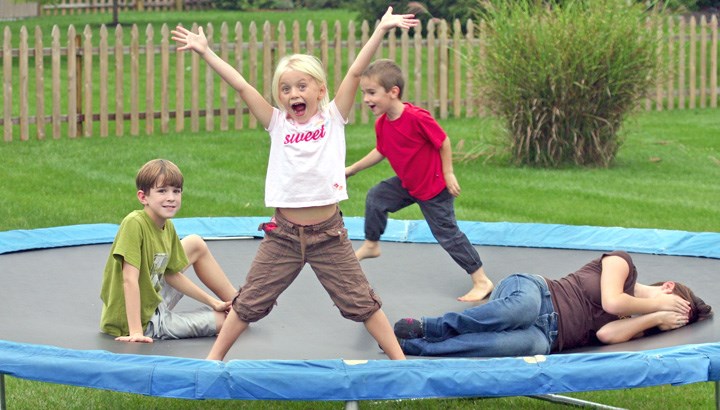It's a beautiful Sunday and your nine-year-old is wandering around the house in a funk.
She's bored and wants to play with someone. But she'd like that someone to be her age, in other words, not you. What would happen if she simply called one of her friends to ask her if she wants to go out and play? Wow. No planning, not a scheduled play date. Just two kids who decide that they'd like to head to the park and kick around a soccer ball.
Now, what if they called more kids and soon there was a group of kids at the park with a soccer ball? Just a bunch of kids playing together. No agenda, no timetable. They will play until they're done or it's dinnertime. In these days of planning and organizing, of child planners and of play dates, the concept of simply going out to play seems a bit strange. But it can happen. All it takes is a phone call. I know in my life I have found that sometimes trying to get friends together for some social time almost takes a professional planner to co-ordinate.
But I have also found that there are times when I simply pick up the phone and say to a friend, "Hey do you want to go out for a bite to eat tonight?" and they say yes. And with no planning, organizing or booking we are having a lovely evening together.
But realistically, a great deal of your child's socialization is going to involve play dates. If your child is young or he's going to get together with a child you don't know well, impose time limits on the visit. You don't always know how well the two kids are going to get along. If the visit is going swimmingly you may want to expand the time.
Threesomes can be a challenge because all too often one child gets left out. If there are going to be three children playing keep an eye on the dynamics. Some groups of three work, but if you see one kid is not included in the play it's time to intervene. Help the kids find a role for each of them in the game.
Involve your child in setting the house rules. This is the time to establish rules about video game or TV use when there are visiting kids. You don't want to create a situation in which your child promises his friend that they will be able to play his brand-new video game and then he discovers that you (or the friend's parents) have set a 'no video games when friends are visiting' rule.
Talk to the other parent about your expectations of what the kids might be playing. If the other parent has strong anti-TV or video game rules for her child you want to know that ahead of time.
Teach your child basic good manners when friends visit. Talk to them about their responsibility to their friend. It's not OK to have their friend come over and then ignore him. They need to understand that they will be sharing their toys with the guests so if there are certain very special toys they want to keep to themselves, they should put them away during the play date.
And they also need to learn how to be a good guest. When they go to visit a friend they should make a point of saying hello to the parents. At the end of the visit they should thank their friend and the parents. Remind them that they should follow the house rules when they visit another home.
Play dates help kids develop healthy socialization skills, foster friend relationships and most importantly are fun for all involved.
Kathy Lynn is a parenting expert who is a professional speaker and author of Vive la Différence, Who's In Charge Anyway? and But Nobody Told Me I'd Ever Have to Leave Home. If you want to read more, sign up for her informational newsletter at parentingtoday.ca.



